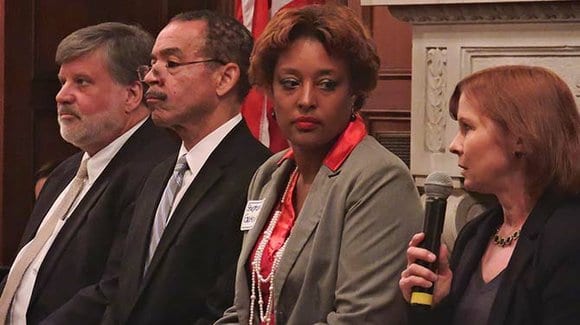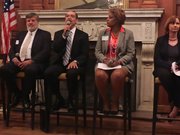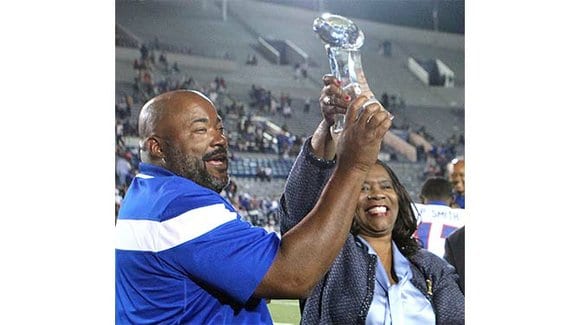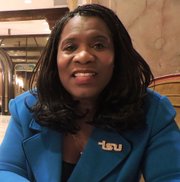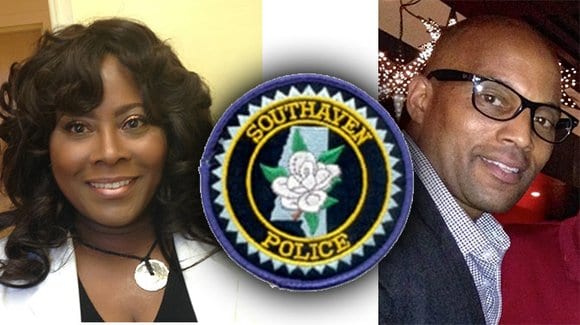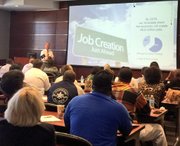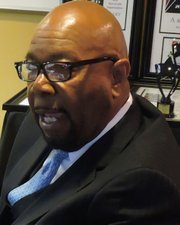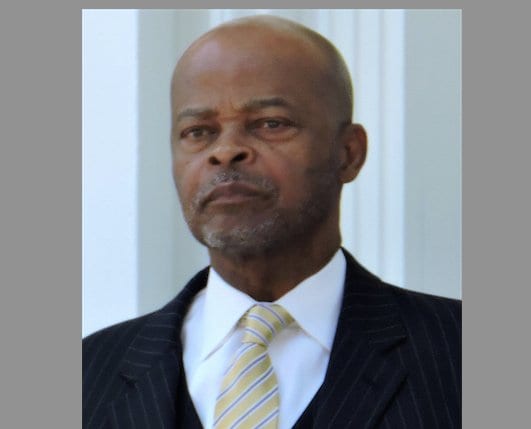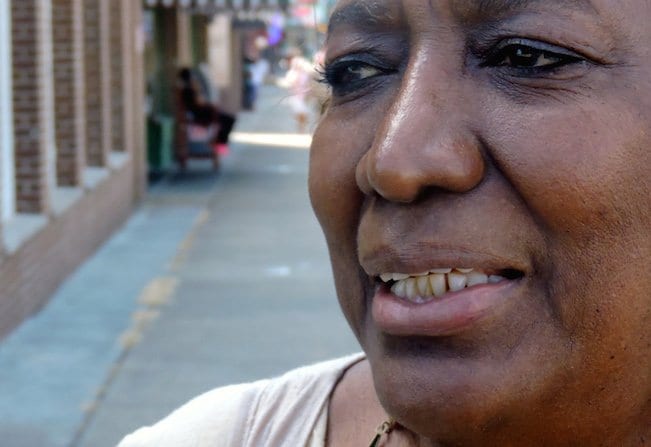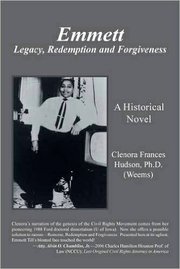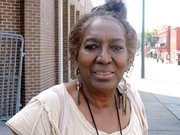Super District 9 encompasses roughly half the city, being made up of Districts 1, 2 and 5, and a small section of Districts 3 and 4. Three council positions are carved out of that swath and five people are trying to get voters to elect them to Position 2.
On Friday, Early Voting begins and will continue through Oct. 3. Candidates of Super District 9, Position 2 – as are the candidates for other races on the Oct. 8 Municipal Election ballot – are maneuvering to present themselves to as many voters as possible. That’s the context that drew Super District 9, Position 2 candidates to the Rotary Club of Memphis forum at the University Club on Tuesday.
Three of the candidates – Stephanie Gatewood, Paul Shaffer and Kenneth T. Whalum Jr. – were there for the opening bell. Lynn Moss arrived late, delayed, she said, by an emergency. Philip Spinosa did not show up.
Guided moderator Jackson Baker, the fast-moving forum yielded no fiery exchanges. And with the candidates allowed to see the questions in advance, there were no “gotcha” moments.
Fiscal solvency/
public needs
With no incumbent in the race, each candidate was asked what he/she would have advocated as the best means for maintaining a balance between fiscal solvency and public needs.
Shaffer, head of the electricians union, said a big part of the problem was the absence of a “real comprehensive long term plan” for our city government.” Going forward he advocates such a plan that would detail spending priorities and include a focus on transportation and economic development.
Whalum, pastor of The New Olivet Baptist Church and a former member of the Memphis City Schools board, and its successor, the Shelby County Schools board, said he would have followed a two-pronged approach. First, he would have advocated that every decision be made “with the children in mind first,” as a family would make decisions.
Secondly, said Whalum, he would have been guided by the state comptroller’s concerns about the city’s finances, including the aggressive use of PILOTs (payments in lieu of taxes) in recruiting businesses.
“If we are going to have to cut, let’s cut based on what the comptroller said he was concerned about. That would have gotten us beyond personalities and pet projects,” said Whalum.
Gatewood, a family and community engagement specialist for Shelby County Schools, also pitched the need for a comprehensive plan. She said budget conversations should not be limited to budget season and committed to eliminating what she said appears to be duplication of services by various offices.
Crime & safety
Gatewood pushed continued use of current resources, such as the crimestoppers and neighborhood watch programs, and advocated community policing, particularly citing models in Chicago and Denver. She then appealed to the business community to get involved in youth develop, particulary for those in the 15-24 age group
Whalum said the City Council really can’t legislate anything to reduce crime.
“One of the reasons crime is so prevalent is because of a poor educational structure. …Blight breeds crime. …Guess what the school board did? Close 19 inner city schools in the last two or three years, creating blight in the neighborhood thereby promoting an atmosphere for the increase in crime.the school board did? Close 19 inner city schools in the last two or three years, creating blight in the neighborhood thereby promoting an atmosphere for the increase in crime.
Saying it’s already too late for a generation of young people, Whalum said the community “must develop a sense of urgency. …Somebody has got to say stop closing schools in our community. Let’s improve the education in our community so we can stop (young people) from (seeing) crime as the only viable alternative to pay their cell phone bill. …”
Shaffer put the priority on making sure the police department is properly funded. He envisions “neighborhood police officers on the beat like we used to” and substations in the areas of town that need more attention.
More activities are needed for young people, particularly after school, said Shaffer, also calling for opening community centers and meaningful jobs for 16 to 24 year olds.
City’s role in
public education
If elected, Whalum said he would take a public stand to have the question of Memphis creating it’s own municipal school district put on the ballot as the area’s suburbs have done. “Memphians should get a do-over. Let that first vote be a mulligan. It was a bad, bad, bad mistake to give away our schools. …”
Citing the City Council’s subpoena power, Whalum said he would use it to initiate an officiofficficobe of the PILOT (payment in lieu of taxes) program, zeroing in on why there have been countless PILOT recipients who have not kept their end of the bargain and why they have not been punished.
Shaffer put the emphasis on the City Council addressing early childhood development, saying “we really need to push as a council to reawaken the push for Pre-K for all children” as a ballot initiative, or find funding elsewhere.
Gatewood talked about the City Council embracing the role of a public advocate for bringing in agencies that help businesses and various groups come together to provide wrap around services for youth.
PILOTS, EDGE and
economic development
Gatewood said the Economic Development Growth Engine is giving way too much power and that the reins must be pulled back. That means more reporting and accountability.
Saying the City Council has the right and authority to “leverage companies that come to town,” Gatewood said she would request the companies provide mentoring/internships.
Shaffer said an economic development priority must be making sure area residents citizens are prepared for the jobs brought into the city. PILOTs are a fact of life that must be done in a responsible manner, he said, calling for an audit of existing PILOTs and an emphasis on making sure obligations are met.
Shaffer backed ensuring that youth can move into available jobs, if they choose not to attend college, and expanding programs that teach young people the basics such as preparing resumes.
Whalum reiterated his call for use of the City Council’s subpoena powers for an official inquiry into PILOTs. That includes, he said, what politicians consistently receive donations from PILOT recipients.
No right-minded person is against PILOTs as a tool for recruiting businesses, said Whalum. “But why on earth would we keep letting them come in, not hiring the people they say they are going to hire, not doing the community improvements they promise…?”
Arriving as the question was posed, Moss, a former small business owner who has been in the medical office management field since 1999, said that PILOTs – on the whole –are a good idea.
“Unfortunately, all of our PILOTs have not been managed well and …some cases were not projects that would benefit Memphians as a whole…I am for pilots when managed properly (and) sensible projects,” said Moss, adding a pitch for the need to lower the tax rate


